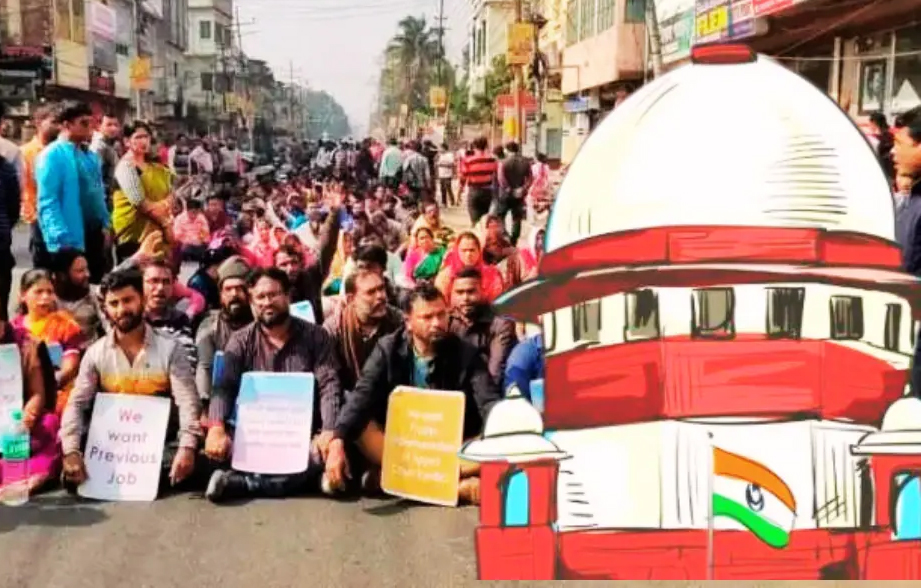This development gives the petitioners an opportunity to present their case and seek redress for their grievances
 KRC TIMES National Bureau
KRC TIMES National Bureau

NEW DELHI : In a partial reprieve for Tripura’s 700 undergraduate teachers, the Supreme Court has granted them the “liberty” to seek relief from the High Court, in response to their challenge against termination orders.
This decision offers a glimmer of hope at a time when the Tripura High Court has been consistently dismissing similar petitions, often imposing costs.
The Supreme Court’s bench, led by Justice Bela M. Trivedi, issued the order on August 2, 2024, following a petition from these teachers contesting the legality and constitutionality of their terminations, which were enforced by the state government in 2017 and 2020.
The petitioners, represented by advocates Tarini K. Nayak, Amrit Lal Saha, and Aaditya Mishra, argue that their dismissals were both “unlawful and unconstitutional.” They claim that the High Court’s 2014 judgment, which invalidated the state’s Employment Policy and led to the dismissal of over 10,000 teachers, was issued without their knowledge and does not apply to their cases, as they were recruited under different rules.
Nayak expressed optimism after the Supreme Court’s ruling, saying, “We are hopeful that the High Court will interpret this order favorably and provide justice for these teachers. We are striving to protect their livelihoods and families.”
The petitioners have also alleged that the terminated teachers’ employment and salary codes remain active, indicating possible misappropriation of state funds by corrupt officials. They report severe hardships, with over 170 teachers having died due to lack of basic sustenance, and many others having tragically committed suicide.
The Supreme Court’s decision acknowledges the complexities of the case and deems it appropriate for the Tripura High Court to reconsider the matter. This development gives the petitioners an opportunity to present their case and seek redress for their grievances.
The High Court’s 2014 verdict had declared the Employment Policy of 2003 issued by the State Government as “bad in law,” leading to the termination of over 10,000 teachers, including those currently petitioning. Nayak argued that the policy was not applicable to their recruitment, which was conducted in strict adherence to recruitment rules.
Lead petitioners Subhash Sinha and Mased Miah questioned the applicability of the policy and urged the Supreme Court to restore their appointments promptly. They also claimed that a massive scam was being perpetrated by the state government, with the employment and salary codes of the terminated teachers still active, leading to possible misappropriation of state funds.
The petitioners have highlighted the dire situation faced by the families of these teachers, many of whom are struggling with daily expenses and other difficulties. The shortage of teachers in Tripura’s schools is also noted, raising concerns about the impact on students’ education.
The Principal Accountant General (Additional) Tripura is reportedly investigating the alleged fraud. The petitioners and their advocates remain hopeful that the High Court will address these issues and provide a fair resolution.



